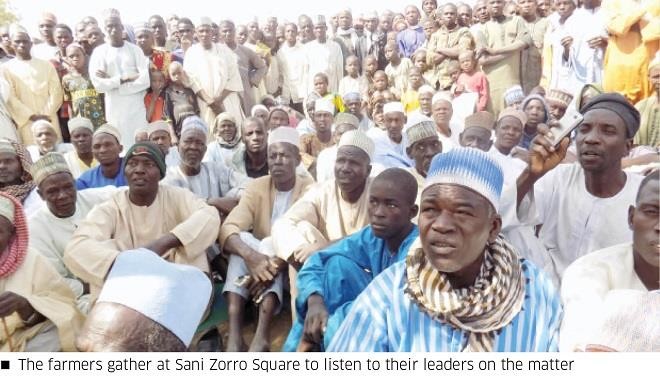Re: 36 Jigawa communities lose farms to Chinese plantation
I write to react to the story with the above caption that appeared on Daily Trust of Thursday, February 9, 2017. In particular, the response by the Jigawa State Deputy Governor, Barrister Ibrahim Hassan, was full of contradictions and question marks, to say the least. First, the Deputy Governor failed to enumerate the benefits or […]


I write to react to the story with the above caption that appeared on Daily Trust of Thursday, February 9, 2017. In particular, the response by the Jigawa State Deputy Governor, Barrister Ibrahim Hassan, was full of contradictions and question marks, to say the least.
First, the Deputy Governor failed to enumerate the benefits or explain the “importance” of the project, which he said, has made them renege on their election campaign promise of halting the land grab arrangement started by the previous regime, as against the resultant mass displacement that would ensue. Development, especially under a democratic setting like ours, should be people-centered, not imposed against the general wish of the governed.
As claimed by the Deputy Governor, the Chinese company has paid N2.1 billion for the 12,000 hectares – on N100, 000 per hectare – into the coffers of the state government, but a simple calculation would show you that the actual amount to be paid for the land is N1.2 billion. So, who will be the beneficiary of the remaining N900million?
Also, his attempt to justify the state government’s decision to handover the land to the Chinese company by quoting provisions of the Land Use Act, is misplaced and out of point, as this is not a matter of “overriding public interest.” This is a purely private, for-profit business investment. And, which provision of the Land Use Act says a government can take land from a private individual and give to another person (or company)?
Finally, if the state government is actually giving only 6,000 hectares to the Chinese company for the sugarcane cultivation, why then make the company pay for 12,000 hectares? Isn’t this a contradiction? My advice to the current government in Jigawa is that they should tarry awhile and weigh the benefits or otherwise of the said project, before rushing to sacrifice the welfare and rights of their people in the name of encouraging investment. It was the speed with which the state government issued a Letter of Grants to Lee Groups without recourse to the affected communities that gave room for the rumors and suspicion going round now, which the Deputy Governor termed as “spreading misinformation.”
Sabo Ibrahim Kanya, Ringim, Jigawa State.
